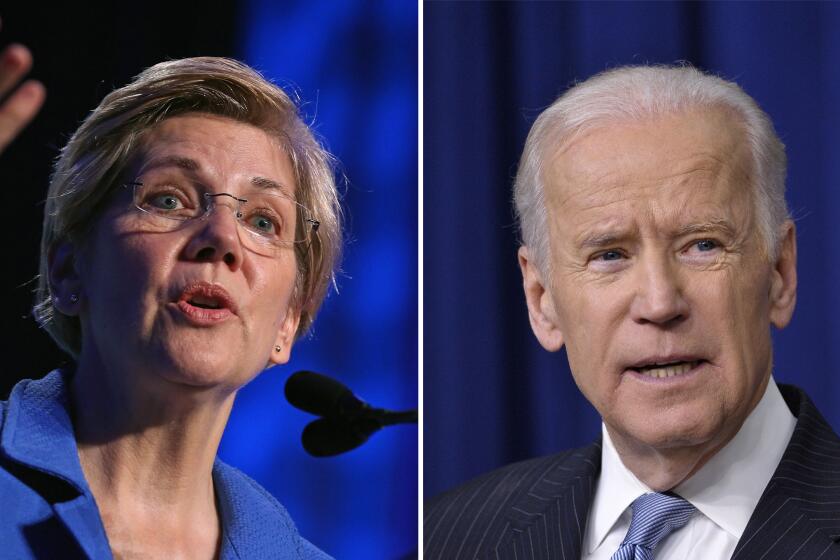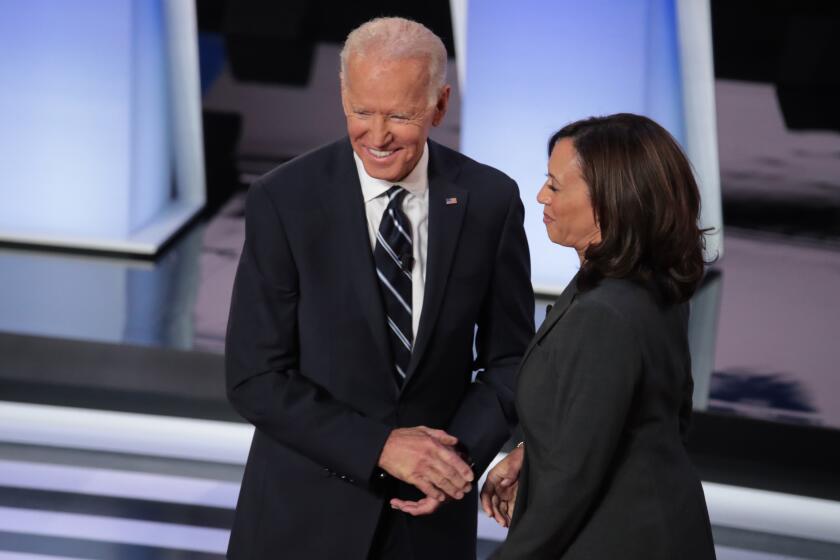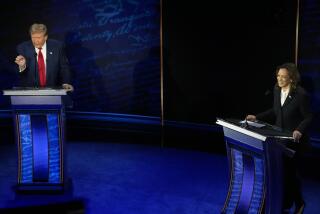5 things to watch for in the Democratic debate on Thursday
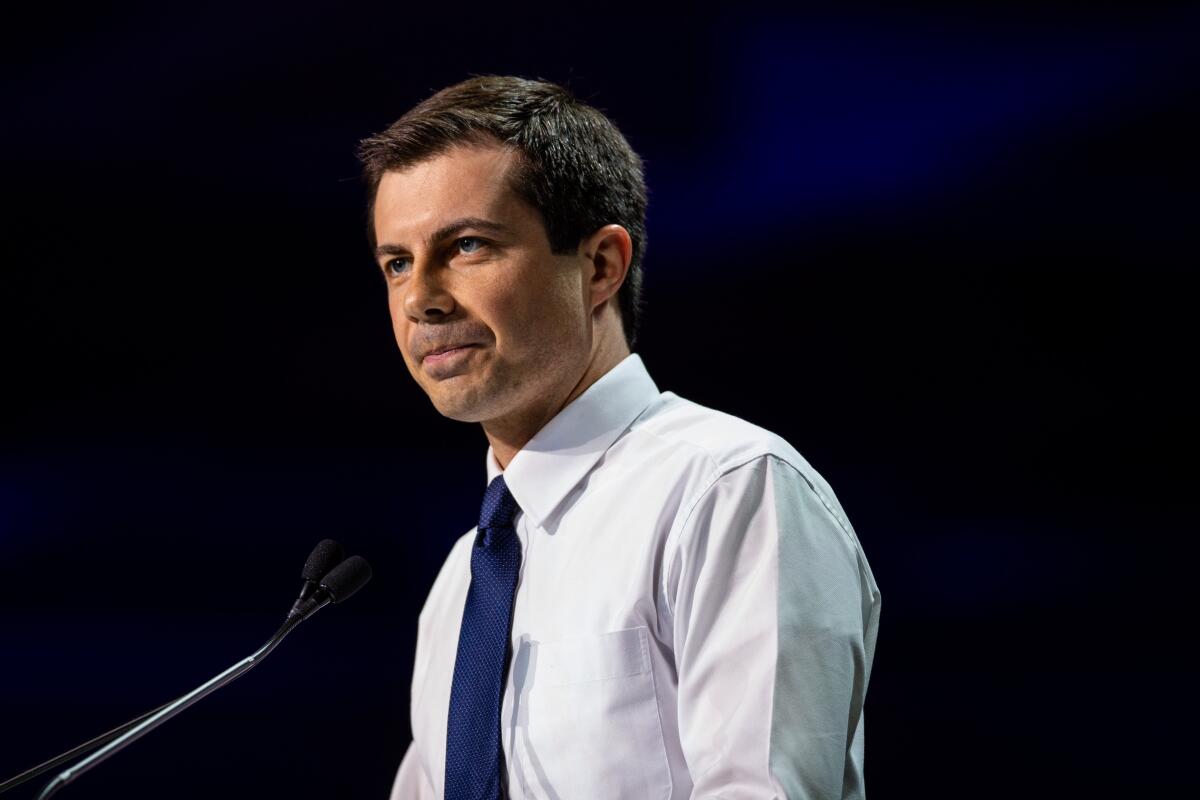
WASHINGTON — A lot has happened since the Democratic presidential candidates last clashed on the debate stage. Former Vice President Joe Biden has taken some blows. Sen. Elizabeth Warren’s support has surged. Ten candidates who were on the stage back in July have either dropped out or been cut from the debate because of poor polling and fundraising.
That is just how the Democratic National Committee wants it. Party leaders wanted an early set of debates open to even obscure candidates, then a steady process of winnowing the herd.
Voters appear to support that plan — in one poll this week, more than half of Democratic voters said the 10 remaining candidates were still too many. Only about 3% said they wanted more choices.
Thursday’s debate in Houston could be less of a free-for-all than the previous two. There will still be 10 podiums, but the stage will be free of fringe candidates with little to lose. It is the first time voters will get to see all the top-tier candidates on the stage at once.
Here are five things we will be watching:
Spotlight on Warren
The Massachusetts senator has so far avoided hand-to-hand political combat on the debate stage. We’ve seen California Sen. Kamala Harris grab headlines by pillorying Vice President Biden’s history on busing. Rep. Tulsi Gabbard made her name briefly the most searched term on Google during the July contest by relentlessly attacking Harris and her history as a prosecutor. Former Housing Secretary Julián Castro’s spirited takedown of fellow Texan Beto O’Rourke over how to handle unauthorized border crossings put Castro on the map.
It’s not Warren’s style to take such shots.
But she may not be able to avoid them Thursday.
Warren’s ascendancy gives rivals cause for anxiety. They are eager to slow her down. After struggling early in the race, she has now moved into at least a tie with Sen. Bernie Sanders for second place and has passed the Vermont senator in some polls.
Democratic voters see Joe Biden as slightly to their right, Elizabeth Warren as slightly to their left, and Bernie Sanders as more extreme, a poll finds.
Warren draws huge crowds everywhere she goes. At the New Hampshire State Democratic Convention last weekend, the attendees cheered loudest and longest for her. Look for others on the stage to seek opportunities to trip her up.
Warren, for her part, plans to stick to her playbook of focusing on policy and the economic inequality she argues justifies levying big taxes on the wealthy and the new government programs she proposes. We’ll see if she can stay above the fray.
The last time Warren was the focus of personal political attacks — when President Trump targeted her claim of Native American ancestry —her flatfooted response nearly doomed her presidential prospects. Warren may need to show Thursday that neither Trump, nor any of her Democratic rivals, can inflict that kind of political damage again.
Biden on the hot seat
Former Vice President Joe Biden will still be carrying the frontrunner’s burden: A target on his back. His rivals — especially those struggling to climb into the top tier of candidates — will be tempted to take aim at him.
Given Biden’s lackluster performances in the first two debate rounds, he still has a lot to prove to skeptics about his ability to parry attacks, make clear points and avoid the verbal gaffes that have littered his campaign appearances.
Biden for the first time will be sharing a stage with Warren, and the interaction between the two will be closely scrutinized because of the policy differences and historic conflicts that have pitted him against the progressive firebrand.
Those differences frame a basic choice facing Democratic primary voters: Do they want a nominee like Warren who is asking voters to dream big and make fundamental progressive changes in the U.S. economy, or a nominee like Biden who is proposing a more pragmatic agenda and seen as a safer choice to beat Trump?
Previous debates have not played to Biden’s strong suit — his command of international affairs. During the last round of debates, only 17 minutes focused on foreign policy, according to an analysis by the Washington Post. Biden’s team hopes there will be more questions on the subject.
Democratic primary voters worry that intraparty attacks on the debate stage could hurt their eventual nominee. For candidates seeking a breakout moment, the temptation to go negative carries risk.
Can Mayor Pete bust out?
Mayor Pete Buttigieg of South Bend, Ind., will be looking to break out of his status as a second-tier candidate with a top-tier fundraising capacity. He probably won’t do it by frontally attacking anyone because Buttigieg is pitching himself as the candidate who can bring people together.
He likely will re-up his argument for generational change, an implicit slap at the three septuagenarians — Biden, Warren and Sanders — at the top of most polls. And he could draw a contrast between the more sweeping “Medicare for all” proposals of Warren and Sanders and his own more incremental health plan. A middle-of-the road profile could equip Buttigieg to benefit if Biden eventually falters and leaves a political opening for someone to emerge as centrist alternative to the Warren-Sanders axis.
But Buttigieg’s immediate mission on Thursday will be to make a stronger impression on the many voters who don’t know much about him. Despite his early success at fundraising — he was the top money raiser in the second quarter of 2019 — the burden of obscurity is heavier for him than for other, better known candidates on the stage.
Can Kamala Harris recapture some debate magic?
Pressure is high on Harris to turn in a standout performance, as she did in the first round of debates, and avoid the stumbles of the second. Now mired in the second tier of the candidate pack, she is hoping for an upturn in the roller coaster ride that has defined her campaign over the last several months.
First time out as a debater, Harris soared — in polls and fundraising — after her dramatic confrontation with Biden. Her energy fizzled in the second debate, when she was thrown on the defensive by attacks on her record as California’s attorney general and seemed ill at ease answering questions about her healthcare plan.
She may opt for the safer ground of attacking President Trump rather than her rivals and of promoting the common-ground message that was her original campaign theme. She, like Buttigieg, may try to position herself as a bridge-building alternative to Biden if he eventually loses his footing as frontrunner.
Is there room left for 10?
Even some of the candidates who made the cut for this debate seem to be on life support. Several are polling in the low single digits after having been in the race for months.
Many of the candidates started with a burst of energy and small-donor enthusiasm but have struggled since. They have yet to manufacture any breakout moments on the debate stage.
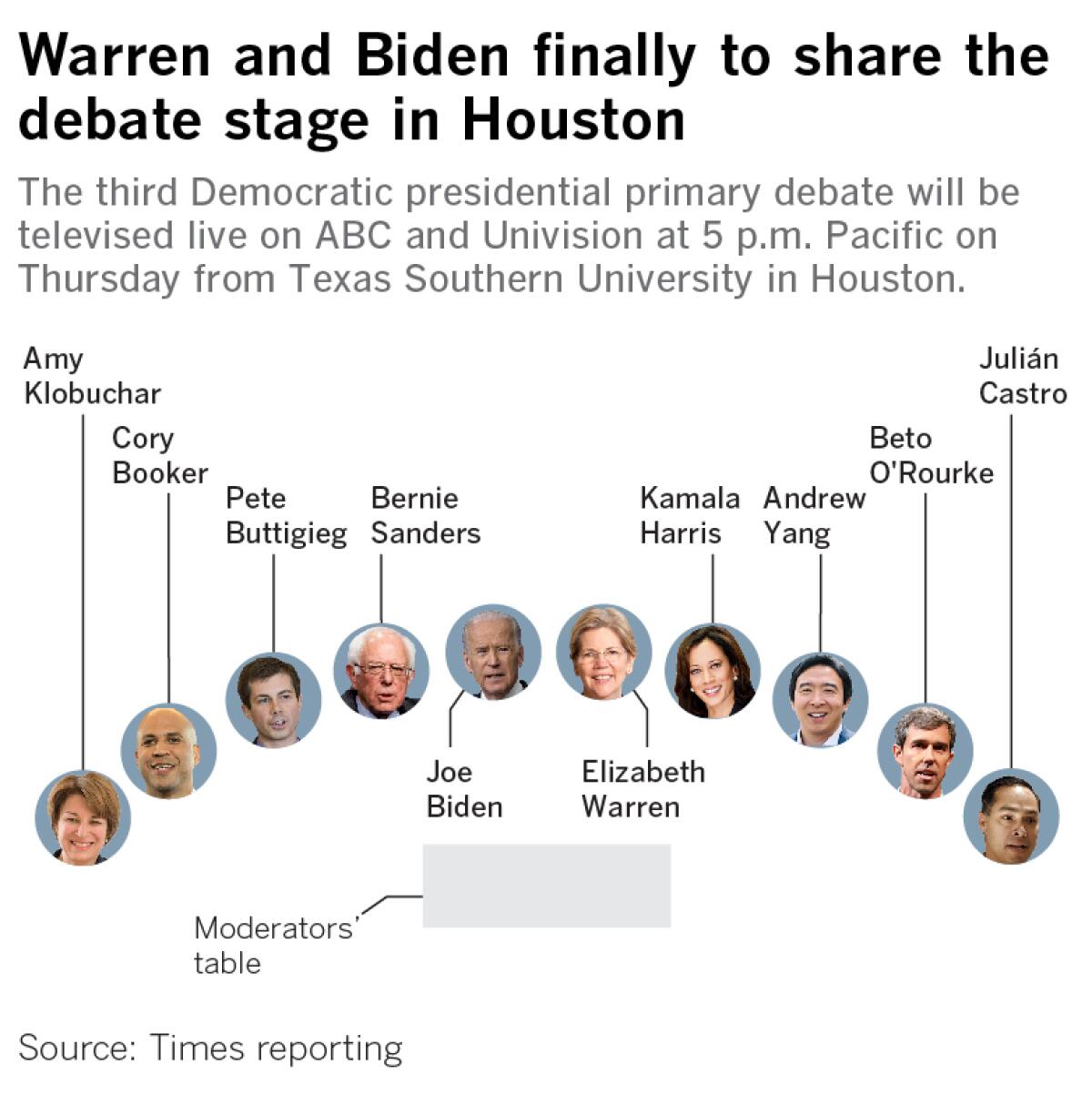
So the pressure is on for O’Rourke, Castro, New Jersey Sen. Cory Booker, Minnesota Sen. Amy Klobuchar and entrepreneur Andrew Yang to generate some buzz out of this event. All the candidates talk about how much can change in Iowa or New Hampshire in the final weeks before voting. But voting is still a long way away, and it is an open question whether some of these candidates will be able to sustain a robust campaign until then if they don’t get something started tonight.
More to Read
Get the L.A. Times Politics newsletter
Deeply reported insights into legislation, politics and policy from Sacramento, Washington and beyond. In your inbox three times per week.
You may occasionally receive promotional content from the Los Angeles Times.
